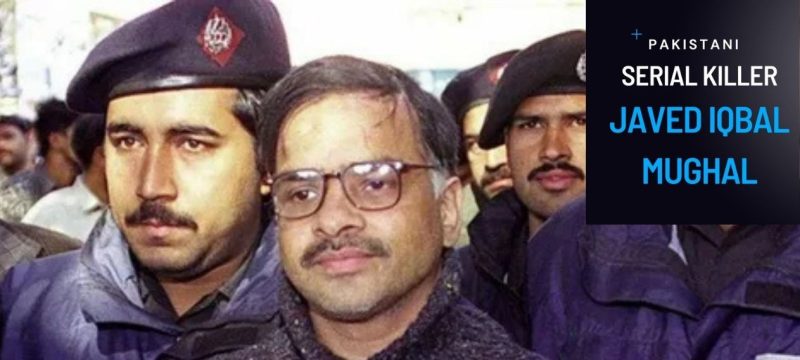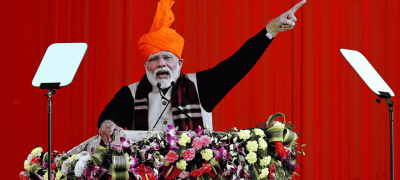When people search for Javed Iqbal, they usually want to know about one of the darkest names in Pakistan’s criminal history. Known as Javed Iqbal Mughal, he became infamous worldwide for confessing to the abuse and murder of 100 young boys in Lahore. His crimes shocked not only Pakistan but also the global community, raising difficult questions about law enforcement, social neglect, and how vulnerable children fall through the cracks of society.
Who Was Javed Iqbal?
Javed Iqbal Mughal (1961 – 2001) was a Pakistani man who later became known as one of the world’s most horrifying serial killers. Born into a middle-class family, he was the sixth of eight children. His father was a businessman, and like many parents, he invested in his son’s education.
Iqbal studied at Government Islamia College in Lahore. By 1978, he started a steel recasting business and lived in a villa bought by his father. At first glance, he appeared like a regular man, but behind closed doors, his life took a terrifying turn.
Crimes of Javed Iqbal Pakistani Serial Killer
The name Javed Iqbal Pakistani serial killer became a global headline in December 1999 when he confessed to unimaginable crimes. In a chilling letter sent to both the police and a Lahore newspaper editor, he admitted to sexually abusing and murdering 100 young boys between the ages of 6 and 16.
Most of his victims were street children, runaways, orphans, or kids from extremely poor backgrounds. He strangled them, dismembered their bodies, and used hydrochloric acid to dissolve the remains, which he later dumped in rivers.
Inside his home, police discovered bloodstains, chains, photographs of the boys, and two large vats of acid with partially dissolved remains. Everything was carefully documented by him, names, ages, and photos of his victims were placed in plastic bags, almost like a horrifying archive.
The Manhunt and Arrest
After confessing, Javed Iqbal claimed that he would end his life by drowning in the Ravi River. Police dragged the river but could not find his body. Instead, Pakistan witnessed its largest manhunt.
Eventually, authorities arrested four of his teenage accomplices. These boys had lived with Iqbal in his flat and allegedly assisted him. Within days, one of the boys mysteriously died in police custody, sparking accusations of torture.
The search for Iqbal finally ended when he was captured in Lahore, alive, and taken into custody. His arrest turned into a national media frenzy, with people demanding answers and justice.
Trial and Sentencing
The Pakistani court system faced immense public pressure. During his trial, Iqbal showed no remorse. In fact, he almost seemed to take pride in how carefully he had carried out his crimes.
In March 2000, a judge sentenced him to death by strangulation, using the same chain he had used on his victims. The sentence also ordered his body to be cut into 100 pieces and dissolved in acid, mirroring what he had done to the boys. This unusual ruling was meant to reflect the severity of his crimes.
However, before the punishment could be carried out, Javed Iqbal and one of his accomplices were found dead in their prison cell in 2001. Officials claimed it was suicide, but many in Pakistan believed it was a staged killing to prevent a public execution.
Why Javed Iqbal’s Case Still Matters
The crimes of Javed Iqbal Pakistani serial killer continue to haunt Pakistan for several reasons:
- Failure of protection systems: Many victims were poor or homeless children, ignored by society.
- Police accountability: Questions remain about how Iqbal was able to operate for years without being caught.
- Judicial debate: His sentencing sparked global debates about human rights, punishment, and justice.
- Cultural memory: His story inspired documentaries, books, and even films like Javed Iqbal: The Untold Story of a Serial Killer.
For people in the USA and around the world, his case is often compared to other serial killers, but what makes it different is the scale, 100 victims, and the societal silence that allowed it to happen.
Lessons Learned
While the story of Javed Iqbal Mughal is horrifying, it also forces us to reflect. His crimes were not just about one man’s evil but also about systemic neglect. When vulnerable children are left without care, protection, or opportunity, they become easy prey for predators.
The case also raises a universal lesson: justice systems must be quick, communities must be protective, and governments must ensure that children are never abandoned to the streets.
Conclusion
The story of Javed Iqbal remains one of the darkest chapters in Pakistan’s history. He was not just a criminal but a symbol of societal failure. His actions destroyed innocent lives and left families broken forever.
Even today, when people search for Javed Iqbal Pakistani serial killer, they are reminded of how far-reaching the consequences of unchecked crime can be. His case is a warning for all societies, never ignore the vulnerable, because silence can enable monsters to grow.
For more on another crime case updates, check the guide on Sindh Plans Smart Cards for Arms Licensing to Curb Crime.









